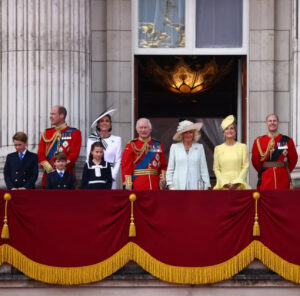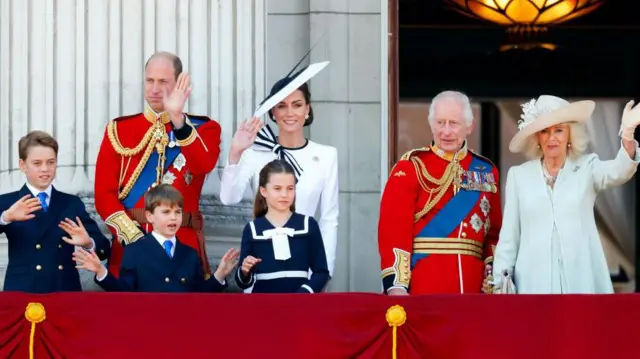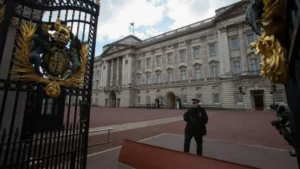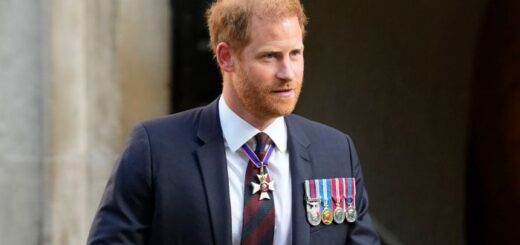U.K. Royal Family Gets Financial Boost From Offshore Wind and Palaces

The monarchy is to get an extra £45m due to soaring profits from the Crown Estate.
The income boost comes from a surge in profits from the estate, due to six new offshore wind farms.
Profits from the Crown Estate have increased to £1.1bn, which in turn will lead to a rise in the Sovereign Grant, which pays for the Royal Family’s running costs.
The grant will rise from £86.3m in 2024/25 to to £132m in 2025/2026 – which will help pay for the last stages of renovating Buckingham Palace, officials said.
The annual finance report also revealed plans by the Royal Family to buy two new helicopters and that the Duke and Duchess’s former home Frogmore Cottage is still empty, a year after they left.
Last year the funding of the monarchy was reduced from 25% to 12% of the Crown Estate’s net profits because of rising income expected from offshore wind farms.
The Crown Estate is a property business owned by the monarch but run independently.
The King wanted its profits to be used for the wider public good.
Had the reduction not happened, the monarchy would have received £275m in 2025-2026.
But now the Sovereign Grant – based on funds two years in arrears – will be £132m.
Legislation in 2026/27 will review the Royal Family’s funding, to ensure it is kept at a “more appropriate” level, a Palace spokesman said.
The Sovereign Grant pays for official visits and residences, funded by the taxpayer, in return for the King giving up revenue from the Crown Estate.
Aircraft ‘key component’
The annual accounts – delayed for a month because of the general election – revealed the household would get two new helicopters over the coming year, to replace existing 15-year-old aircraft.
The report said they were “a key component” in enabling the King and wider Royal Family to carry out engagements, allowing them to get to remote regions of the UK.
Graham Smith, chief executive of anti-monarchy group Republic, said: “We do not owe the royals a living, we do not owe them palatial homes, private helicopter travel or lives of leisure and luxury.”
Mr Smith added: “They abuse the taxpayer’s trust day in, day out, taking our money to spend on their own private lifestyles.”
There have been a number of new, more environmentally-friendly measures including converting the King’s two state Bentleys to run on biofuel within the next year, part of a wider sustainability push.
Longer term, the plan is to switch to a fleet of official electric cars.
There has also been work to increase the use of sustainable aviation fuel for royal flights where practicable.
But overall, emissions are up.
There had been a decrease of 3% in natural gas and heating emissions across the Royal Estates, although total greenhouse gas emissions did increase slightly from the previous year.
This was largely due to increased business travel.

IMAGE SOURCE, GETTY IMAGES
Charles has been campaigning on climate issues for decades and the accounts – for the first full financial year of his reign – indicate he is determined to do things differently.
Windsor Castle will be fitted with solar panels for the first time, while the gas lanterns at Buckingham Palace are being repurposed with specially designed electrical fittings to improve their energy efficiency while keeping their historic look and glow.
Sir Michael Stevens, keeper of the Privy Purse, said the environmental initiatives were “driven by a determination to place sustainability at the heart of our operations and inspired by His Majesty’s leadership in this sphere”.

On the the 10-year £369m project of Buckingham Palace, a separate National Audit Office (NAO) report on Tuesday concluded that the renovation work had been well managed overall but it warned that structural damage and the discovery of asbestos, which had led to cost increases, “could have been foreseen”.
It said 82% of operational improvements were now complete.
Palace officials also revealed there were no new tenants in the Duke and Duchess of Sussex’s former home, Frogmore Cottage.
The Grade II Crown Estate property in Windsor Home Park is still empty, more than a year after they officially left it.
‘Swiftly changing circumstances’
The period covered by the accounts – April 1 2023 to March 31 2024 – shows that £600,000 from the Sovereign Grant was spent on the coronation and events surrounding it last year, with the total cost to the Sovereign Grant £800,000.
But the figures also span the period following the cancer diagnoses of the King and the Princess of Wales.
Sir Michael said their temporary withdrawal from public-facing duties inevitably affected the number and nature of engagements that had taken place.
But he added: “Though may I say how encouraging it is to see the King back performing so many public duties and, more recently, the princess similarly well enough to join the King’s Birthday Parade and the men’s Wimbledon final.”
There were more than 2,300 official engagements by members of the Royal Family in the UK and overseas, compared with more than 2,700 last year.
Charles undertook 464 official engagements despite his cancer diagnosis.
The most expensive of those was his state visit to Kenya, which cost £167,000.


